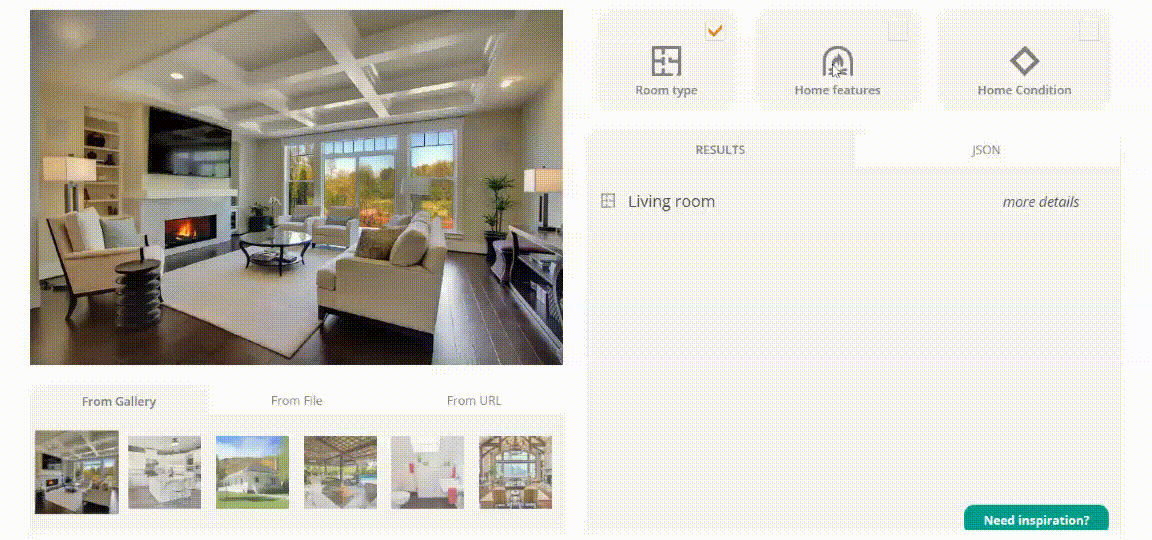
More and more real estate marketplace companies are announcing they are building AI functions. Some are big companies with big dev teams and some are small operations that are perhaps more concerned about the publicity that comes with an AI announcement.
The issue I have here is that the functions I've seen have mostly been around search and I'm not sure that search needs changing. At least not until the data being searched through is much better.
You don't see many takeaway apps with AI or voice search. That's because they work perfectly fine without those things.
People search for houses a lot like they search for a takeaway. The categories are well-defined, easily recognised and easy for the marketplaces to ascribe to each item in their inventory. People search by category and then they filter by feature until they find what they want. It works great and has done for ages.
Like looking through a takeaway app, what the property portal user wants might not be clear at the start and might change as they play with the filters.
Things like location, property type and desirable features are almost always included in portal filters. Anything the user wants from their new home or takeaway that's not in the filters is usually negotiable or so specific as to not be worth building in (south-facing, extra pickles).
In low inventory markets (pretty much everywhere in the world at the moment), prompting a user to input a very specific search via an AI interface rather than using clearly defined filters might well lead to disappointment when the portal draws a blank. Let me explain...
A search engine is only as good as the classification of the data it looks through.
"Two-bedroom apartment to rent within walking distance of King's Cross station with a dishwasher for under £2,500 per month"
Having used very specific language, this fictional AI search user would be considered close to transacting and as such would be a high-value user for a property portal.
There are two potential issues here though:
This isn't just a hypothetical scenario, it happened to me recently...
I am in the process of moving and have been searching through my local property portals for a suitable new apartment for months.
Like a very high percentage of serious home hunters, I only did the search part of my interaction with the portal one time. Once the portal knew the location I was looking in, the category, the number of bedrooms and the features I was after it didn't ask me again.
The issue wasn't the search, it was the identification of the features.
My wife and I work from home and so we need either an office space or a spare bedroom to avoid the dreaded kitchen table. We also like to cook and, for some reason I am yet to figure out, about 50% of urban apartments here in Madrid do not have an oven.
Now if my local property portals (Idealista and Fotocasa) were to spend time and resources building some AI search feature and reducing a tiny bit of friction for me as a user the first time I interact with their websites or apps, it wouldn't solve the issue here.
The issue is the identification and tagging of meta-data in the portal's listings and fortunately, that is something that can be fixed with AI.
Neither Idealista nor Fotocasa have "oven" as a filter on their portals.
This must be either because they think that users aren't interested in it as a feature (well I for one am) or (more likely) because they would have trouble tagging their listings with it as they rely on the party uploading each listing to tag it with that feature.
Relying on agents and private landlords to tag listings coming into the system isn't ideal but it doesn't have to be how the process works. AI can fix it and improve a few other things besides.
There are companies out there like Restb.ai (pictured below) that have the technology to tag images with features automatically at scale.

There are a whole load of companies that can help real estate portals improve the quality of their content from Autoenhance.ai which automatically enhances listing photos to Co-Libry which detects keywords in the listing description.
The technology to improve the quality of property portal data in the back end is definitely out there.
I'm not anti-AI (I used it to generate the hero image for this article) and I'm not saying that portals playing around with AI at the start of the user journey is a bad thing.
Big companies like Zillow absolutely should be looking into this technology and not just because it's important for shareholders to see the headlines and be reassured that the firm is not being left behind technically.
AI search may well work really nicely with relative location to points of interest (schools, offices, shops) or with data points relative to the particular user (commute time to the user's office).
What I am saying is that until portals have a robust way of identifying and tagging really specific features (like office space or ovens) at scale rather than relying on agents then the AI search is going to be disappointing.